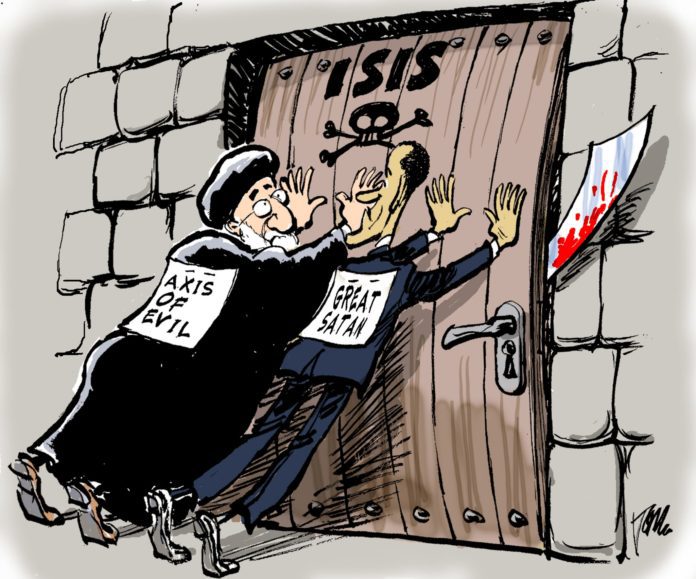BY NATHANIEL BATCHELDER
 Congress and the American people have many reasons to cheer the progress of U.S. negotiations with Iran. Both nations have much to gain from a successful outcome and improved relations.
Congress and the American people have many reasons to cheer the progress of U.S. negotiations with Iran. Both nations have much to gain from a successful outcome and improved relations.
The conflicts threatening Iraq and tensions with Russia underscore the value of pursuing positive relations with Iran. The possibility of a U.S.-Iranian alliance would benefit the whole Middle East. Is this possible?
Since the inauguration last summer of new Iranian President Hassan Rouhani, Iran has displayed a totally new openness to improved relations with the U.S. Iranians elected Rouhani because they were frustrated by the confrontational strutting of Mahmoud Ahmadinejad, whose belligerent rhetoric undermined Iranian credibility, emboldened U.S. hawks, and made Israel nervous.
President Rouhani and his Foreign Minister Javad Zarif strongly desire increased trade and tourism based on respect and mutual benefit. They have both staked their future on improved relations with western nations.
In January, the U.S. and Iran agreed to a six-month period of negotiations on Iran’s nuclear program. A prerequisite was Iranian compliance with several pre-conditions, which Iran is meeting. Iran agreed to increased access for inspectors with the International Atomic Energy Agency [IAEA] to sensitive sites, and this was done.
The IAEA has increased the numbers of inspection teams in Iran and numbers of inspectors on each team. Iran is providing information about its uranium enrichment program, which it has always avowed is purely for energy and medical purposes. Iran has also reduced its uranium enrichment capabilities, confirmed by the IAEA.
The six-month period of negotiations will conclude in mid-July, at which time an agreement or treaty may be announced, or the negotiations period may be extended. Either way, it is good news for all sides that Iran and the U.S. are on the road to better relations.
Amid the attacks of the ISIS group in Iraq, and increased tensions with Russia over the Ukraine, an emerging harmony between the U.S. and Iran could change the political equation. As a neighbor to Iraq, Iran could potentially get involved opposing ISIS to stabilize Iraq. And, should tensions with Russia worsen, Iran’s oil and natural gas reserves could replace Russia’s exports to Europe. Iran also wants to import beef and wheat from the U.S., a benefit to ranchers and farmers in states like Oklahoma.
There are skeptical factions in the U.S. and Iran concerning the negotiations who are suspicious of “the other side.” Israel has historically believed that Iran was secretly preparing to build an atomic weapon, and takes the position that Iran must abandon all uranium enrichment, even that permitted by international treaties for their nuclear power plants. At various times the Israeli government and its supporters have advocated military strikes on Iran’s enrichment facilities. They should all be satisfied by reports from the IAEA inspectors that there is no evidence of Iran wanting an atomic weapon.
Iran is a cultured nation, three times the area of Iraq, with a population of 80 million people – almost three times the population of Iraq or Saudi Arabia. Iran is home to one of the world’s oldest continuous civilizations, with urban settlements dating back to 4,000 B.C. Iran also has a formidable modern military, which could serve the interests for Middle East stability, if our nations worked together.
The compelling benefits to the U.S., Iran, and the Middle East, of a positive outcome to the negotiations are clear. Let all sides encourage and celebrate this progress.
– Nathaniel Batchelder is director of the Peace House in Oklahoma City and a member of Americans Against The Next War








